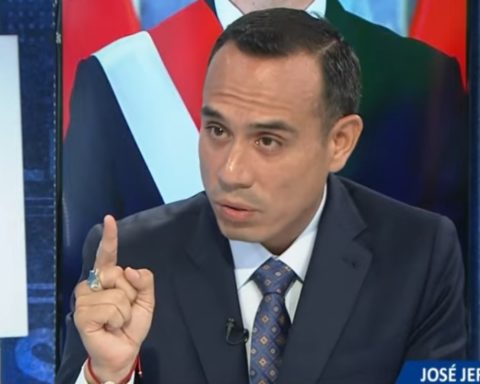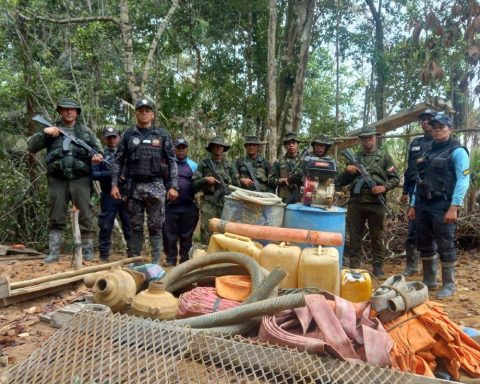The request for the incorporation of the figure of “travesticide, transfemicide and transhomicide” to the Penal Code will be one of the axes of the VII Plurinational Anti-Racist March that will be carried out against this type of hate crimes in coincidence with the international pride dayfocusing on this population with a life expectancy that does not exceed 40 years and that last year registered at least 69 preventable deaths.
After two years of absence due to the pandemic, the trans and non-binary transvestite collective (TTNB) returns to the streets this Tuesday at 6:00 p.m., also demanding the appearance of Tehuel alive, historical reparation for the survivors of institutional violence , the application of the trans work quota, training of health personnel in the specificities of this population and justice for Melody, the trans girl shot to death in Mendoza.
In the poster of the call for the march, the images of six dead trans people follow one another prematurely or remain missing: murdered activist Diana Sacayan; the young man Tehuel of the Tower, of which nothing is known for 15 months; the referent Lohana Berkins; the adolescent salteño Santiago Cancinos, whose body was found after four years of searching; the Cordovan militant Eugene Talbot Wright and the young Mendoza trans victim of a hate crime, Melody.
“It is the seventh march to make visible the deaths of the transvestite companions, against the denial of these deaths and against the legal vacuum in this regard,” she told Télam the trans activist and leader of the Anti-Discrimination Movement for Liberation (MAL), Say Sacayán.
Sacayán stressed that “today there is not only no legal framework” that specifically punishes hate crimes such as the one that ended the life of his sister Diana, in 2015, “but the violence that leads to death and that we live only by our identities”.
Is that Although in 2012 the Criminal Code included “hatred of gender identity” among the aggravating factors of homicide, it was applied on a few occasions and the Cassation Chamber revoked in 2020 that item of the ruling that two years earlier convicted Gabriel Marino for the murder of Diana Sacayán, and that established jurisprudence on the matter.
“For our group, this incorporation is a priority so that there is no back and forth, and that once we manage to apply the figure of transvesticide, we do not run the risk of going back (when another court reviews it),” he told Télam. Florencia Guimares, referent of Furia Trava.
The fact that it is part of the Code “gives us a legal framework” and more guarantees on effective criminal prosecution, “but we also continue to demand a transfeminist justice, with a human rights perspective, LGBT+, transfeminist and popular” that applies this figure.
According to the organizing committee of the march, Since June 28 of last year, at least 69 deaths have been recorded in the TTNB community.: six of them were due to travesticide and transfemicide proper, four were suicides and the rest were travesticides and social travesticides -that is, the product of systematic exclusion-, “at the same time that we are still wondering about Tehuel, more than a year after your demise”. In addition, life expectancy continues to be around 35/40 years, that is, representing half of that which applies to the rest of the population.
“Not all compas disappear or die because they are murdered or violent crimes, but because of preventable illnesses – in most cases acquired in a situation of prostitution – or suicides as a consequence of structural violence,” said Sacayán.
“If when you chose to show who you are, your own family threw you out on the streetthen the school couldn’t support you and there is a whole society that not only expelled you but also violated and attacked you, all of that leads you to prostitution, drug dealing, diseases, all situations of extreme vulnerability”, he added.
Guimaraes emphasized that these two years of the pandemic have exposed the extreme fragility of the conditions in which many transvestite trans people survive.
“The pandemic made visible what we had been shouting for years, which are the precarious conditions of our lives such as the lack of access to work, health or housing“, said.
“Although we have a labor quota and gender identity law, we know that there is still a lot of resistance in many institutions to respect our rights and we end up being expelled, although not directly. It’s not that they tell us ‘you can’t come here for be TTNB’, but in a sneaky way and thus we start a whole path of infinite violence that culminates in the hate crimes and deaths that we have every year, “he added.
Regarding the right to comprehensive health included in the Gender Identity Law, Sacayán stressed that attention cannot be reduced to “hormones and bodily adaptations”but aspects of the future and the life project of a trans person must be considered, such as health disorders caused by liquid silicone, the possibility of suspending hormonal treatments to preserve eggs or sperm for reproductive purposes, or care of adolescent health in the framework of treatment with hormonal blockers, among others.
“We need there to be a specialty in trans health where these issues can be addressed, and whose design the organizations that have been working on these issues are part of,” he added.
Guimaraes remarked the need to institute an economic allocation to “pay off the debt” that the State maintains with trans people over 40 years of age who were victims of institutional violence due to the validity of misdemeanor codes and police edicts that criminalized their identity and that were in force in some provinces until well into the 2000s.
“We need historical reparation for the persecution, imprisonment and torture that we have suffered by transvestites in police stations for years because the figure of ‘dress opposite to sex’, or ‘prostitution’ was punished when we had no other alternative. At that time we lived at night, in hiding we left our house in panic and terror even to go buy bread,” he said.
Both Sacayán and Guimaraes they repudiated the arson attack on the Hotel Gondolín and the prohibition of the use of inclusive language in the classrooms of CABA, and demanded a faster implementation of the trans labor quota “because our times are not the same as those of the rest of society”, and that private companies, unions and other institutions also actively commit to this public policy .
Lastly, Sacayán highlighted the force that the annual march against transvesticides is taking: “It began as a claim for transvesticides from the death of Diana, to make visible that if this happened to that person who generated public policy for the transvestite trans collective, what could happen to the rest? And little by little it took on a political body and claimed for a much broader agenda,” he concluded.


















